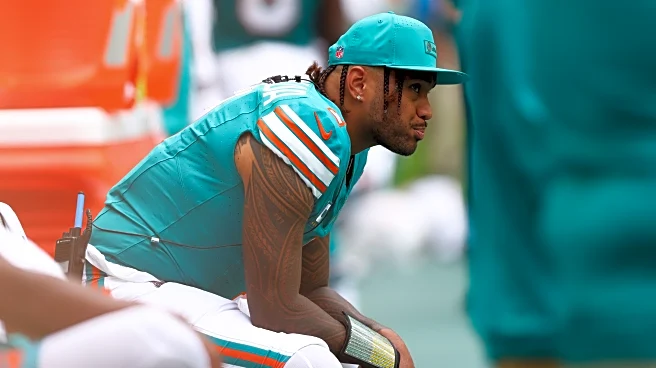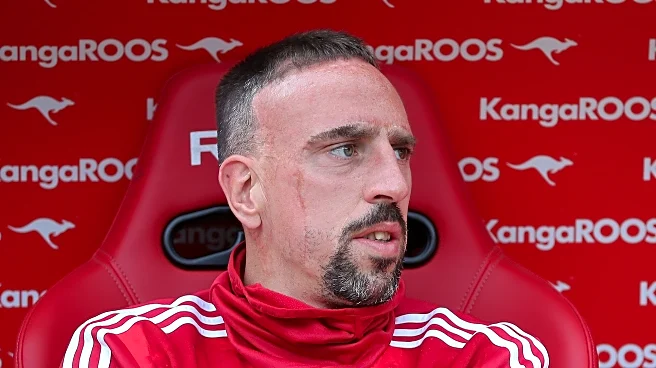Rapid Read • 8 min read
President Trump is set to deploy federal law enforcement officers in Washington DC to address escalating youth violence. This decision follows an incident involving Edward Coristine, a former Department of Government Efficiency staffer, who was attacked by a group of teenagers while attempting to prevent a carjacking near Dupont Circle. The deployment, expected to begin as early as Friday, will involve personnel from the FBI and the Department of Homeland Security. National Guard vehicles have already been seen outside the DC armory in preparation for this initiative. The move is part of Trump's 'Making the District of Columbia Safe and Beautiful' executive order, which aims to combat crime and illegal immigration in the city.
AD
The deployment of federal law enforcement in Washington DC highlights the administration's focus on addressing crime in the nation's capital. This initiative could significantly impact local policing strategies and community safety. By increasing federal presence, the administration aims to deter youth violence and improve public safety. However, this move may also raise concerns about federal overreach and the balance of power between local and federal authorities. The decision to charge minors as adults for violent crimes could have long-term implications for juvenile justice and rehabilitation efforts.
The deployment of federal officers is expected to begin soon, with operational details still being finalized. The administration's approach may prompt reactions from local government officials, including Mayor Muriel Bowser, who has previously implemented curfews to curb youth crime. The effectiveness of these measures will likely be closely monitored, and further actions may be taken based on their impact. The administration's call for harsher penalties for minors involved in violent crimes could lead to legislative discussions and potential changes in juvenile justice policies.
The federal intervention in Washington DC raises questions about the broader implications for civil liberties and community relations. Increased federal presence may affect public perception of safety and trust in law enforcement. The initiative also underscores the challenges of addressing youth violence and the need for comprehensive strategies that include prevention, intervention, and rehabilitation. The focus on punitive measures for minors may spark debates on the balance between accountability and support for at-risk youth.
AD
More Stories You Might Enjoy










